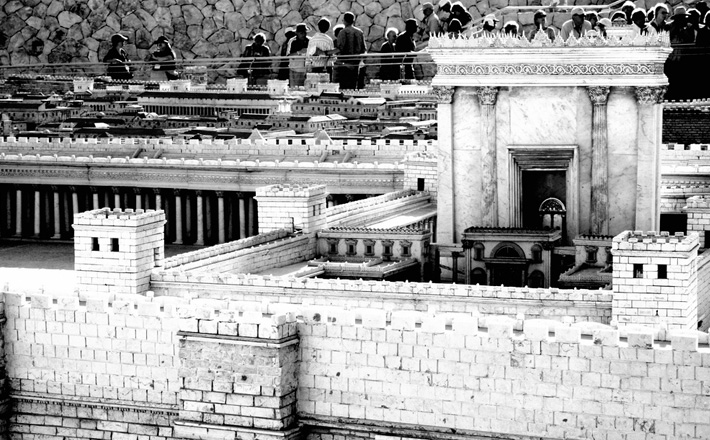Commentary on Malachi 4:1-2a
This passage from Malachi is typical fire and brimstone scripture.
This type of scripture attracts and repulses clear categories of readers. Those inclined to dismiss the passage simply because of its harsh rhetoric and punishment should reflect further on how these verses function within the broader narrative of the book. Those too eager to jump on the judgment day bandwagon should pause to understand how Malachi conceives of this day.
Eschatology, or a theology of the end, remains a fraught theological concept in contemporary faith communities. Scare tactics by proponents of an exclusively angry God are not evenly balanced by the indulgent theology of a God that never demands accountability. Many people of faith find themselves at sea when it comes to eschatology. The waning Sundays after Pentecost usher in Christ the King Sunday and the season of Advent. On these Sundays, eschatology comes into focus. Preachers will do well to focus reflection on this theological idea with all of its challenges.
The passage from Malachi comes at the tail end of the final oracle in the book. The discrepancy in chapter divisions among different traditions reveals the striking turn signaled by the opening words of 4:1 (3:19 in Hebrew).
The final oracle begins at 3:13 with the usual disputation form that marks the book of Malachi. The disputation occurs in three parts where the prophet lays out an assertion, the people rebuts the prophet’s contention, and the prophet goes further to refute the position taken by the people. In this final disputation, the prophet charges the people with using harsh language against God (Malachi 3:13a). Expectedly, the people object by asking how they have done this (3:13b). The people offer a further response stating the futility of faith in God given divine indifference to the misdeeds of the wicked (3:14-15). The prophet’s reply engages the people’s contention regarding the ineffectiveness of faith in God. He appeals to the idea of the day of the Lord as a time when God’s justice will reward those that fear God (3:16-17).
Malachi addresses a group identified as “those who revered the Lord” in gentle tones (Malachi 3:16). They receive assurances of salvation and special concern. Importantly, the prophet states that God takes note of this group. The record in the book functions here not as a register of deeds to be recalled at a later time; rather, the writing in the book emphasizes to the group that God pays attention to them. The intimate words of “special possession,” the possessive pronoun “mine,” and the parental image underscore the tender assurances given to a distraught community (3:17). The prophet begins the response to the people’s assertion of the futility of faith expressed in 3:14-15 at 3:18. He affirms that coming events that will distinguish between the righteous and the wicked will illustrate the value of faith in God. This affirmation lays the groundwork for development of the idea of the day of the Lord in Malachi.
The flow of the text makes an abrupt turn with a striking Hebrew construction introducing the eschatological day (4:1). As in other prophetic texts, this construction marks impending dire action (Zechariah 2:13, 14; 3:9 and 11:16). The doubled particle, literally “for look,” is arresting both aurally and visually. This sharp literary turn leaves little room for preparation to face the onslaught of adjectives, nouns and verbs that mark the verse. This pile on of words reflects the sharp contrast between the tender speech of 3:17-18 and the blazing images in 4:1. The verse offers a description of the day without spending time determining the specifics of the day. Eschatology deals with what rather than when. That the day will come remains certain from the repeated claim in the verse, “the day is coming,” “the day that comes.” The descriptions in the verse serve not so much as signs marking the end but merely offer a look at the intensity of God’s actions on that day. Additionally, the Bible contains various eschatological visions. Each vision responds to specific circumstances. Therefore, no single vision exists that defines eschatology. In Malachi, searing heat serves as the main metaphor.
The opening verse of the passage walks the reader through a path that leads into nothing. Starting with the heated furnace and its unrealized output of metal or baked goods, the reader moves on to the dry and crunchy undergrowth of forests good only to fuel destructive fires. At the end of the verse, in the odd image of trees without roots or branches, Malachi imprints a vivid picture of a landscape laid bare by raging fire, decimated by dry wind, left unmercifully by the effects of extreme temperatures. Malachi fills his eschatology with these images. These common images suggest that eschatology consists not so much in the unknown but rather in that which is known and can be imagined.
In the midst of Malachi’s description of the day of the Lord lies those destined for destruction. The encompassing word “all” appears twice, suggesting that no one escapes notice. Malachi lists only two items of destruction — “the arrogant” and “evildoers.” The Hebrew word for “arrogant” suggests an offence greater than mere pride. This little used noun (used twice in Malachi, also at 3:15, Isaiah 13:11 and Jeremiah 43:2) invokes a presumptuousness that leads to rebellion. By balancing out the peculiar noun with the more familiar “evildoers,” readers can grasp the full range of wickedness that will be punished. That no wicked deed goes unpunished remains important since Malachi engages the concern of divine indifference to wrongdoing. Even more, 4:1 offers a direct response to 3:15 by showing the punishment of the categories listed in that verse.
Like the two ways envisaged by the wisdom Psalm that opens the Psalter, Malachi turns next to the fate of the righteous. The day of the Lord, therefore, consists of both judgment and salvation. Unlike the vivid images that mark the destruction of the wicked, the image expressing salvation for the righteous appears simple by comparison (Malachi 4:2).
Maintaining the image of heat, Malachi uses the rising sun without ominous indications. For the righteous the rising sun marks the dawning of justice and healing. If the image of the sun is simple, the idea “sun of righteousness” contains its own controversy. Popularly translated as a divine title or even a Christological title, the term distorts the reading by creating a narrow moral category of an elect secured by their actions.
Given that the book of Malachi highlights the plea for justice with the searching question about the God of justice in 2:17, righteousness ought to be viewed from the perspective of community loyalty. Malachi presents a day when the cause of God’s justice, fairness, and community solidarity pervades the earth. For those who yearn for that community, the day of the Lord ushers in that time. In Malachi’s image, the “sun of justice” shines over that day.
The community to whom Malachi speaks requires the confidence that faith still makes sense. Malachi offers them these assurances in different ways. In the eschatological vision of the punishment of all wrongdoing, Malachi affirms faith in the strength of God to offer freedom from all forms of oppression and wickedness. The day comes when the cause of evil can no longer prosper. But Malachi’s vision goes even further to show the triumph of divine justice. God’s justice will rise like the sun and warm the earth. Malachi’s eschatological vision offers an affirmative answer to the community that asks does God still love Jacob (1:2). Eschatology answers the fears and anxieties of the community that asks where is the God of justice with the firm response that the “fires of [God’s] justice burns.”1 Eschatology offers vindication to those who think that they cannot stand on the day of the Lord (3:2) or that faith no longer makes sense (3:14).
1 From “The Canticle of Turning” by Rory Cooney.


November 17, 2013